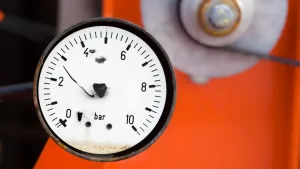Nouvelle-Aquitaine: Practical Information and Tips
Are you preparing for an upcoming trip to Nouvelle-Aquitaine and in search of practical details such as currency, opening hours, and units of measurement? Planning a journey to a new destination often brings forth a mixture of excitement, uncertainties and challenges. From navigating unfamiliar currencies and time zones to understanding local customs, the prospect of exploring a new place can be both invigorating and daunting at times. However, fret not! We’ve compiled a short guide filled with practical information to help ease your transition upon arrival. Remember, armed with the right knowledge and a spirit of adventure, every obstacle is also an opportunity for growth and discovery.
Without further delay, here are the important information you need to know before you embark on your journey.
Currency
The official currency in France is the euro (€). Banknotes are available in denominations of €5, €10, €20, €50, €100, €200, and €500, while coins range from 1 cent to 2 euros. You can check live currency exchange rates online during your trip. As of today, March 29, 2024, the euro is approximately valued at 1.08 US dollars. Keep in mind that exchange rates can fluctuate daily.
Opening Hours in the Nouvelle-Aquitaine Region
General Hours: Public offices in Nouvelle-Aquitaine typically operate weekdays from 9:00 am to 6:00 pm. Some offices may have lunch closures, so it’s best to check their specific website or call beforehand.
For example-
Région Nouvelle-Aquitaine (Regional Government) is open Monday to Thursday from 9:00 am to 6:00 pm, and Friday from 9:00 am to 5:00 pm.
Préfecture de Nouvelle-Aquitaine (Regional Prefecture) likely follows similar hours, but it’s best to confirm on their website.
Tips: Many government offices in France offer online services or appointments to avoid in-person visits. So consider contacting the office directly through their website or phone number to confirm their specific hours and procedures, especially for appointments or specific services.
Most shops in Nouvelle-Aquitaine operate from 10 am to 7 pm, Monday to Saturday. Some establishments, especially those in major urban areas and coastal resorts, may also open on Sundays. Food shops often have extended hours, closing at 8 pm on weekdays and remaining open until 1 pm on Sundays. It’s a good idea to confirm the opening times of museums and tourist attractions in advance, as occasional closures may occur, particularly in the mornings or on specific days of the week. On public holidays, expect banks, public institutions, and certain shops to be closed, with limited service available on public transport networks.
Electricity
France’s electricity supply system operates at 220/240 Volts with a mains frequency of 50 Hertz. Power sockets adhere to type E standards, featuring round pins and a socket hole for the male earthing pin. Visitors from countries with different voltage standards should use adapters to connect their appliances to French power sockets. Additionally, a (110V-220V) transformer may be necessary. When unsure, consult the manufacturer for guidance.

Units of Measurement
Similar to many European countries, France uses the metric system for measurements. Here’s a useful conversion guide for distance and weight:
Distance:
– 1 kilometre (km) = 1,000 metres (m) = 100,000 centimetres (cm)
– 1 inch (in) = 2.54 centimetres
– 1 foot (ft) = 0.3048 metres
– 1 yard (yd) = 0.9144 metres
– 1 mile (mi) = 1.6093 kilometres
– 1 nautical mile (nm) = 1.852 kilometres
Weight:
– 1 ounce (oz) = 28.3495 grams
– 1 pound (lb) = 0.4536 kilograms
Temperature:
Temperature in France is measured in degrees Celsius (°C). Here’s a Fahrenheit to Celsius conversion table for your reference:
5°F = -15°C
14°F = -10°C
23°F = -5°C
32°F = 0°C
41°F = 5°C
50°F = 10°C
59°F = 15°C
68°F = 20°C
77°F = 25°C
86°F = 30°C
95°F = 35°C
100°F = 38°C
Time Zones
During winter, Nouvelle-Aquitaine follows Central European Time (CET), which is UTC+1. In summer, clocks move forward by one hour to Central European Summer Time (CEST), UTC+2. Daylight saving time is observed from the end of March to the end of October. For precise timekeeping, dial 123 for the speaking clock.
Armed with this practical knowledge, you’re now ready to embark on an unforgettable adventure in Nouvelle-Aquitaine. Remember to view challenges as opportunities for personal growth, and don’t hesitate to seek assistance and advice when needed. Wishing you a wonderful adventure!

